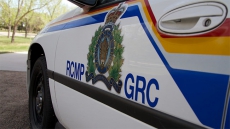OTTAWA — Canada's new security system for scrutinizing people who arrive by airplane singled out more than 2,300 passengers for closer examination during a recent three-month period, the federal border agency says.
The Canada Border Services Agency says the travellers — flagged for possible links to terrorism or serious crime — represented a tiny fraction of the millions who flew into the country.
Still, privacy and civil liberties watchdogs want to know more about the border agency's so-called scenario-based targeting system to ensure individual rights are not being trampled.
The agency has implemented the targeting system, already used by the United States, as part of Canada's commitment to co-operate with Washington under the 2011 continental security pact known as the Beyond the Border initiative.
Commercial airlines are legally bound to provide Canada's border agency with specific information about passengers flying to Canada, including name, birthdate, citizenship, seat number and other details.
The border agency has long used the information to assess people for risk, allowing officials to zero in on those with high scores for additional attention upon landing.
The new scenario-based scheme uses elaborate number-crunching, or Big Data analytics, to reveal patterns in the information provided by air carriers — a method the border agency considers more efficient and accurate.
Privacy Commissioner Daniel Therrien is pressing the border agency to explain the program's rationale and build in safeguards to protect individual liberties. Travellers may be targeted if they fit the general attributes of a group due to traits they cannot change such as age, gender, nationality, birthplace, or racial or ethnic origin, he warns.

In his recently released annual report, Therrien said "it could allow the operator to, for example, search for all males aged between the ages of 18-20 who are Egyptian nationals and who have visited both Paris and New York."
The border agency declined to make anyone available to discuss the project. In written answers to questions, the agency said scenarios are "a generic set of indicators" that flow from analysis of intelligence, enforcement, trends and other information to identify passengers who "may pose a higher risk" due to concerns about national security, smuggling of contraband such as drugs, or illicit migration.
When a person matches a scenario, a targeting officer conducts a review of the case to confirm or dismiss the risk. "If the risk is confirmed, a target is issued for the person to be intercepted upon arrival at the port of entry," the border agency said.
During the first quarter of 2015-16, 2,350 air travellers were targeted, representing 0.3 per cent of the more than 7.5 million people flying into Canada, according to border agency figures.
The agency regularly conducts reviews of the scenarios to ensure their "effectiveness and proportionality," the agency added.
Canadians don't know enough about the criteria being used, said Monia Mazigh, national co-ordinator of the Ottawa-based International Civil Liberties Monitoring Group. "Why do we need to do it?"
Mazigh wonders whether the border agency has scientific studies to show the new techniques will make Canada safer, or if it is simply following in American footsteps.
"It's very important for Canadians to know that."
Therrien's office has urged the border agency to be more transparent by fleshing out descriptions of the kinds of scenarios that might be used to identify potentially high-risk travellers.
Public Safety Minister Ralph Goodale, the cabinet member responsible for the border agency, said in a recent interview that Therrien's concerns would be factored into a coming review of anti-terrorism legislation and related security issues.

"We take his arguments very seriously, and he will be one person among many that we consult very closely to make sure that we are getting all of the provisions here correct."



